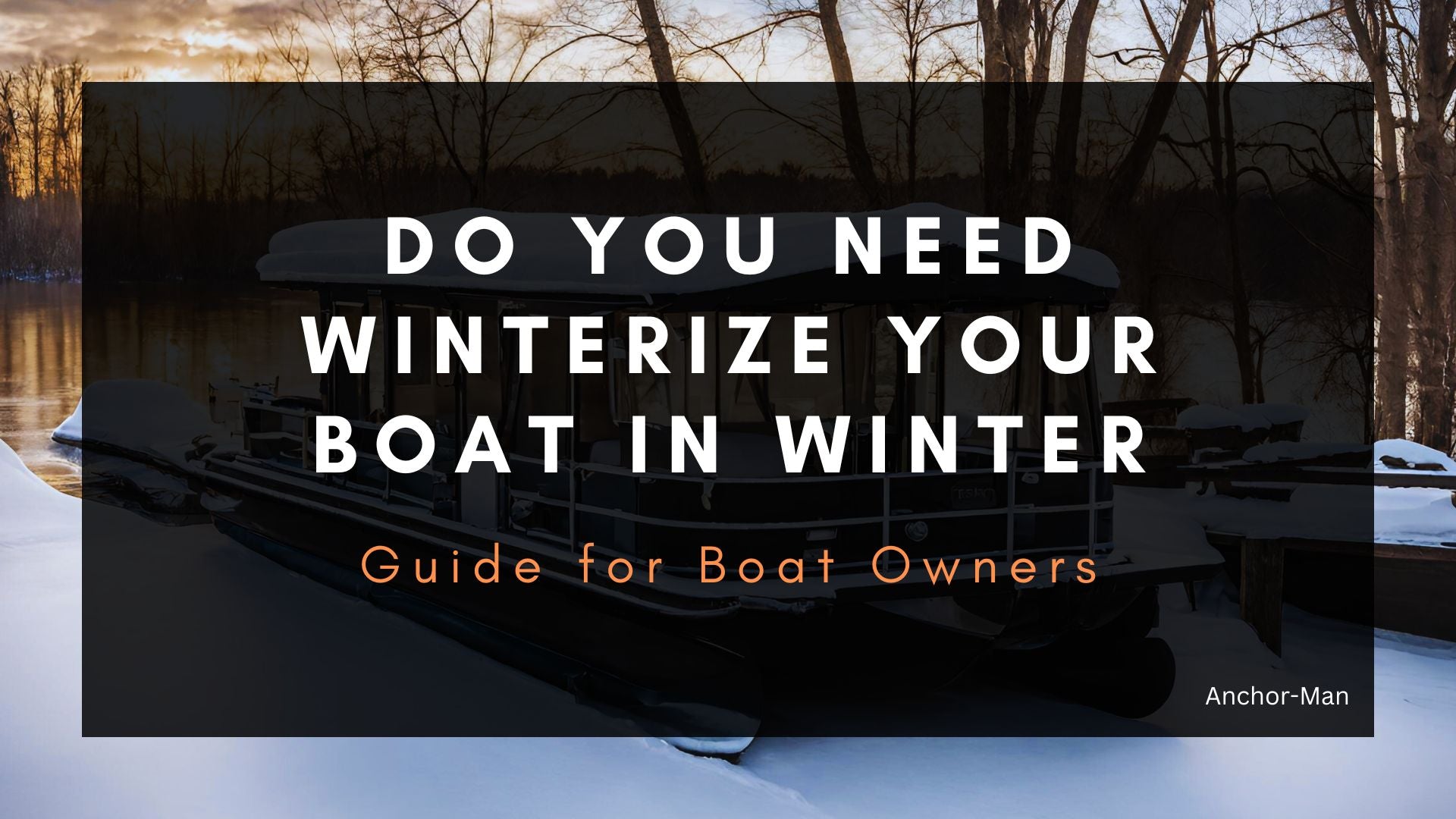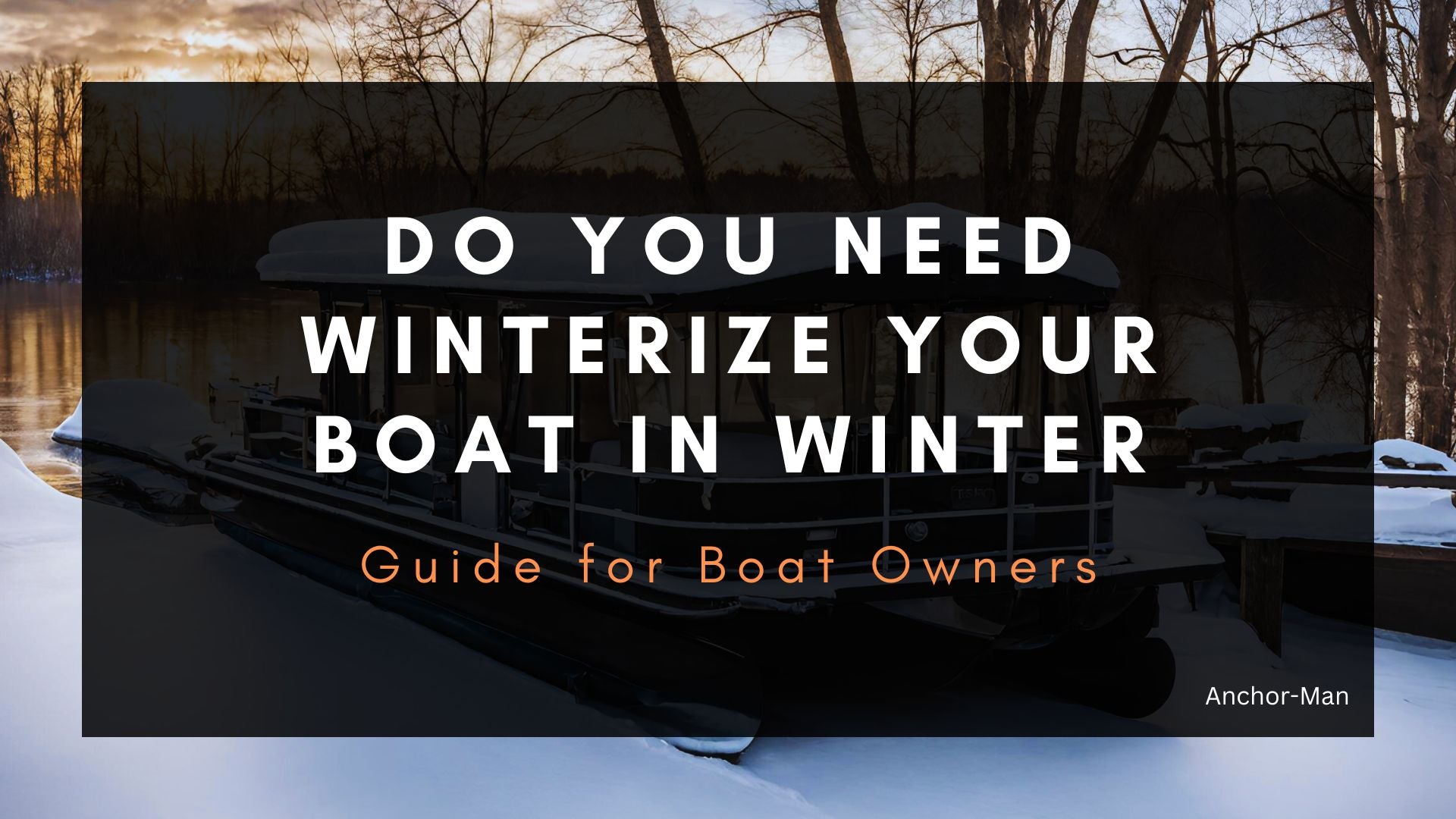
As the cool winter air sets in, boat owners are faced with an important question: do they need to winterize their boats? Proper care of the vessel during the winter months is crucial for those who love navigating the waters. In this guide, we will discuss the significance of boat winterization, dispel common myths, and provide a detailed plan to ensure that your boat remains in excellent condition.
What is Boat Winterization?
In simple terms, winterization of a boat is the process of preparing your boat for storage during the winter months. This involves taking specific steps to safeguard your boat's engine, systems, and components from the damaging effects of freezing temperatures, moisture, and prolonged disuse.
Winterizing your boat offers several crucial benefits, such as:
- Controls Damage: By replacing water with antifreeze, you can prevent the engine block and other components from cracking due to freezing.
- Extends Lifespan: Proper winterization for boats helps minimize corrosion, wear, and tear, ultimately extending the lifespan of your boat.
- Provides a Smooth Start: By taking preventative measures, you can avoid potential engine problems and ensure your boat is ready to hit the water as soon as spring arrives.
Do I Need to Winterize My Boat in Winter?
For boat owners, the decision to winterize a boat depends on several factors, including climate, storage location, and boat type.
While boats in warmer climates may not require a complete winterizing process, it is important to consider the possible risks and benefits of ignoring this vital maintenance step.
Here is a simple guide to help you determine whether or not you should winterize your boat.
Winterize your boat is crucial:
If you live in a region with consistent freezing temperatures or even occasional harsh freezes, then winterizing your boat is crucial. Freezing water can expand and cause significant damage to your engine, plumbing, and other components.
Boat Winterizing Might Not Be Necessary If:
You live in a warmer climate with minimal to no freezing temperatures. Your boat will be stored in heated storage that maintains a consistent temperature above freezing.
However, even in these scenarios, some basic steps are still recommended for optimal protection.
The Type of Boat - Matters the Most
While the core principles of boat winterizing remain consistent, different boat types (e.g., inboard vs. outboard) might have slightly varying requirements. It is always best to consult your boat's owner's manual or a qualified marine professional for specific recommendations.
Remember, consulting your owner's manual or a qualified marine professional is always the best course of action for specific recommendations tailored to your boat and location.
Factors That Influencing Boat Winterization Process the Most
Climate Considerations
In areas where temperatures consistently drop below freezing and there are occasional hard freezes, it is important to winterize boats to prevent costly damage. Even in warmer climates, boats may still need protection during occasional cold snaps.
Storage Locations and Their Impact
The storage location significantly influences the winterization needs of your boat. While heated storage facilities provide some protection against freezing, outdoor storage exposes the vessel to the elements, necessitating thorough measures.
Why It is Crucial for Boat Safety
Boat winterization is essential for maintaining the integrity of your boat and extending its lifespan. By protecting critical components from freezing temperatures and moisture buildup, you can prevent corrosion, cracking, and other forms of damage that may occur during storage.
Common Misconceptions About Winter Boat Care
Boat owners often overlook or underestimate the importance of winterization due to misconceptions that it never freezes down here, or that modern boat engines are impervious to cold weather damage.
Preparing your engine for winter? Don't forget the fuel!
Untreated fuel can break down during storage, causing engine problems when you need it most. To stop this, use a fuel stabilizer and run the engine for a few minutes to circulate the treated fuel throughout the system. This simple step ensures your engine starts smoothly when spring arrives.
Do Not Get Caught in the Cold: When Should You Winterize Your Boat
As the summer season comes to an end and the autumn weather sets in, it is essential for boat owners to shift their focus to winterizing their boats.
However, as the weather may still be warm and the temptation to go on one last trip may be strong, it can be challenging to determine the best time to do so.
But do not worry; this guide will help you understand when and why you should winterize your boat.
The Golden Rule: Beat the Freeze
During the winter months, it is crucial to safeguard your boat from freezing temperatures. Water expands when it freezes, which can cause severe damage to your boat's engine block, plumbing, and other water-filled systems.
To avoid potential damage, it is best to winterize your boat before the first hard freeze of the season, which usually occurs in late October or November in regions with freezing winters.
By taking these precautions, you can ensure that your boat will be ready to hit the water again in springtime.
Do not rely on the Calendar: Watch the Forecast
It is important to stay updated with the weather forecast, especially in regions with unpredictable autumn weather. You should not rely solely on the calendar and be ready to winterize your boat earlier than expected. A sudden drop in temperature can take you by surprise, so it is better to be prepared.
Hiring Professionals: Early Bird Gets the Appointment
If you plan on hiring a professional for winterization, It is important to book early to ensure you secure a spot and avoid scrambling at the last minute.
The Takeaway: Save The Vessel With Confidence
Understanding the impact of freezing temperatures on your boat and considering the local climate when deciding when to winterize it is crucial. It is always better to be proactive and winterize your boat early rather than end up with expensive repairs in the spring.
By taking the necessary steps to winterize your boat, you can have peace of mind knowing that it will be in good condition when you take it out on the water again.
What Happens if You Don't Winterize a Boat
Skipping the winterization process can cause several issues for your vessel in cold weather. Below are some of the main problems you may face:
- Engine damage: Water trapped inside the engine block, hoses, and other components can freeze and expand, causing cracks. This can lead to costly repairs or even a complete engine replacement.
- Plumbing system damage: Similar to the engine, water left in the boat's plumbing system can freeze and burst pipes, tanks, and other components.
- Mold and mildew growth: Over winter, a damp and unventilated boat is a prime breeding ground for mold and mildew. These can be difficult to remove and can damage upholstery and other materials.
- Battery drain: Cold temperatures can zap the life out of your battery. A dead battery comes spring, which means a delay in getting back on the water.
- Other problems: You might also see issues like cracked or faded upholstery due to exposure to the elements or corrosion in the fuel system due to untreated fuel.
- In short, winterizing your boat is a preventative measure that can save you a lot of hassle and money in the long run. Keeping your boat in top shape and ready to hit the water when spring arrives is a worthwhile investment.
The Process Requirements May Change Based on the Design and Components Used
Different types of boats may have different winterization requirements based on their design, components, or features. It is important to consult the owner's manual or seek advice from a professional to determine your vessel's specific needs.
Boat Winterization: Professional vs DIY Approach
Some owners opt for a DIY approach for it, but hiring a professional offers several benefits. Professionals have the expertise and equipment to ensure thorough winterization, reducing the risk of oversight or improper maintenance.
Where to Winterize Your Boat
When it comes to winterizing, you have several options to consider. For example, you can do DIY at home, use marina services, or hire a professional technician. Consider factors such as convenience, expertise, and cost-effectiveness when choosing the best option for your needs.
Benefits of Hiring a Professional
Hiring a professional to winterize your boat offers several advantages, including peace of mind, thorough maintenance, and time savings. Professionals can identify possible issues and address them before they escalate to ensure your boat remains in optimal condition for the next boating season.
Conclusion
In conclusion, proper winterization is essential for protecting your boat and ensuring a smooth start to the next boating season. By understanding the factors influencing winterization needs and following best practices, you can safeguard your investment and enjoy worry-free boating adventures.
